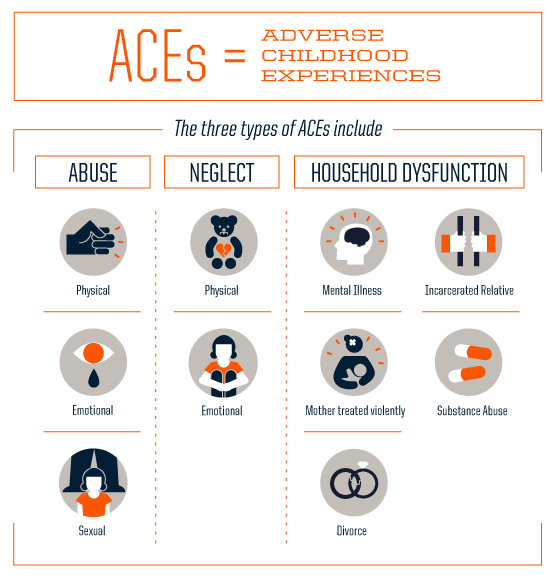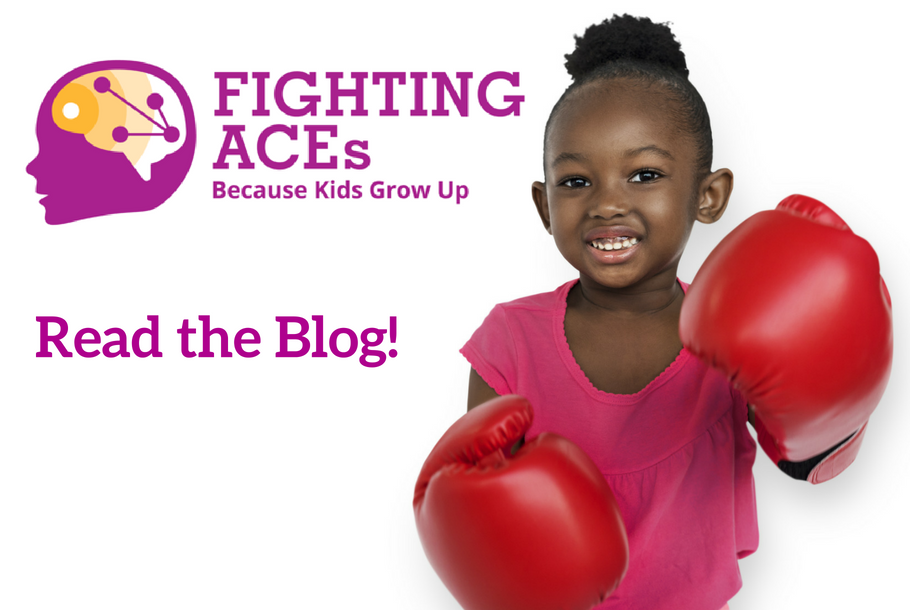
ACEs Blog Articles
- Building Resilience in Troubled Times
- ACEs and Minorities
- ACEs and Pregnancy
- ACEs and Divorce
- Toxic Stress and ACEs
- Epigenetics and ACEs
- ACEs and Juvenile Justice
- ACEs and Intergenerational Trauma
- ACEs and Military Families
- ACEs: From Theory to Reality
- Early Childhood Trauma Can Lead to Early Death
- Resilience: A Powerful Weapon in the Fight Against ACEs
- ACEs: How to Be a Buffer for a Child
- The Power of Language: ACEs and Trauma
- Click here for all blog articles.
Fighting ACEs in Schools
Toxic stress: “The physiological result of exposure to high doses of adversity without the buffering presence of at least one supportive adult” - can have devastating effects on a child’s life and on communities because toxic stress:
- Interferes with healthy brain development and can lead children to experience learning difficulties, as well as to adopt maladaptive coping mechanisms such as becoming violent, overeating, or abusing alcohol or other drugs;
- Alters the body’s endocrine and immune systems, increasing the risk for cancer, heart disease, arthritis, and various autoimmune diseases;
Alters how genes are read and transcribed, which can be passed from generation to generation.
Through this initiative, we are partnering with the School District of Palm Beach County to train principals, teachers, staff, and leadership on the impact of toxic stress and trauma. Over the past year, we have trained hundreds of professionals in the public school system.
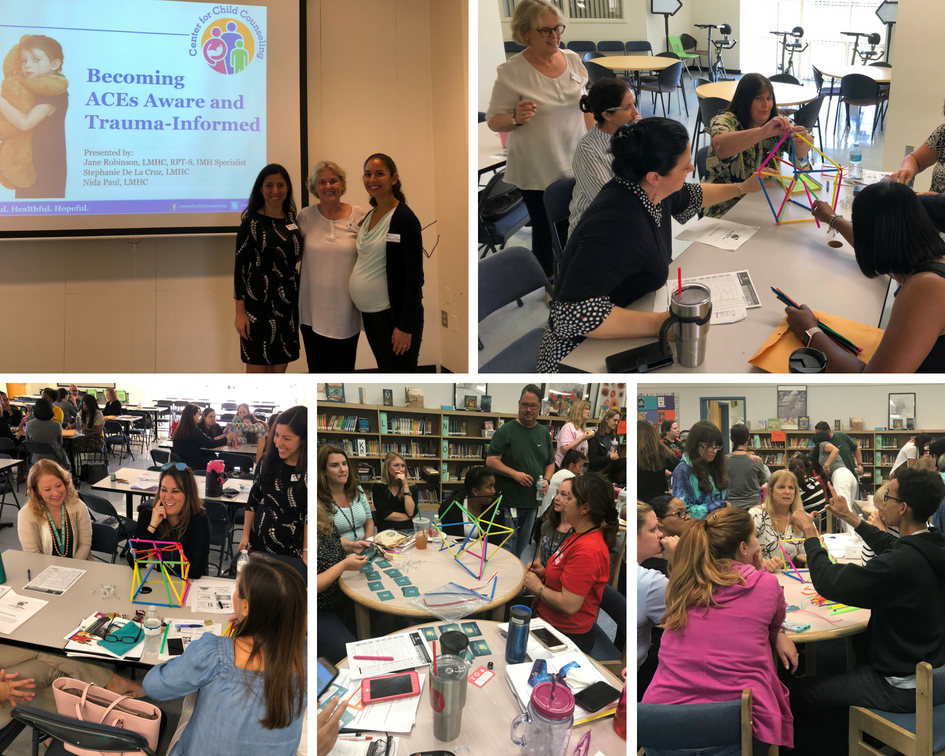
Economic Impact of ACEs
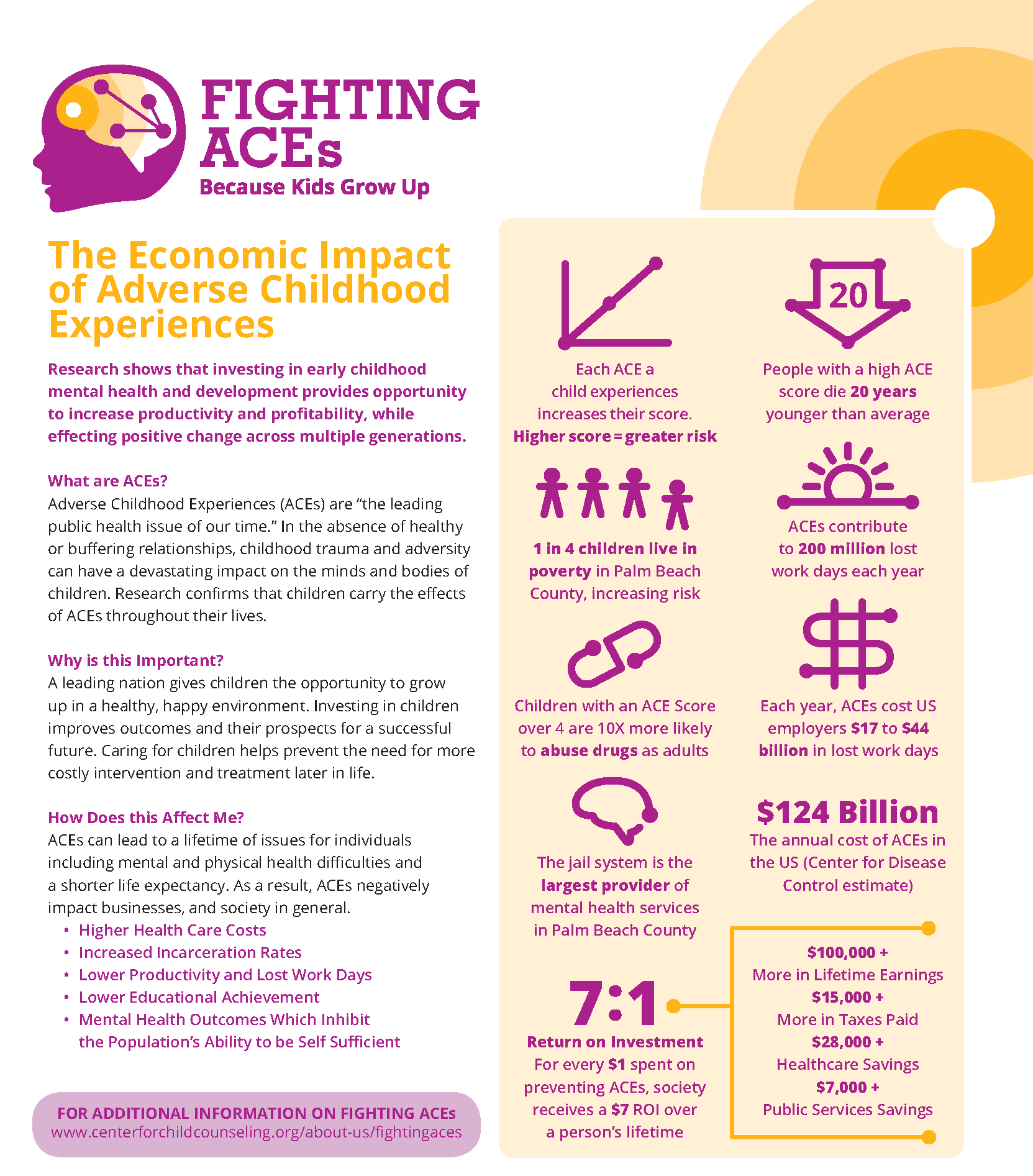
Adverse Childhood Experiences (ACEs) are "The Leading Public Health Issue of our Time."
In the absence of healthy or buffering relationships, childhood trauma and adversity can have a devastating impact on the minds and bodies of children. Research confirms that children carry the effects of childhood experiences throughout their lives.
Childhood Adversity Research Facts: Over the last 20 years, research has transformed our understanding of how toxic stress resulting from childhood adversity is at the root of many chronic physical and mental health problems. It has a major impact on the economic and social health of communities.
- ACEs are surprisingly common (most of us have experienced at least one);
- ACEs may lead to chronic diseases, depression and other mental illnesses, and violence;
- Outcomes related to a high ACE score:
- An ACE score of 4 increases the risk of alcoholism seven times and attempted suicide 12 times; it also doubles the risk of heart disease and cancer.
- People with high ACE scores have higher rates of divorce, unwanted pregnancies, prescription drug abuse, broken bones, and obesity.
Without positive intervention, those with six or more ACEs have shorter lifespans by up to 20 years
Creating a Trauma-Informed Community
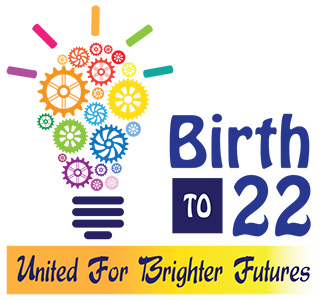
In 2013, the Palm Beach County Board of County Commissioners and a group of community organizations and leaders convened the Infant, Child, Youth and Young Adult Symposium (Youth Symposium) to share information and identify actions and programs to support the healthy growth, development and education of children and youth from prenatal to young adulthood.
Birth to 22: United for Brighter Futures is the alliance of community partners that emerged from the Youth Symposium. For the past five years, this alliance has engaged other existing coalitions, networks and youth serving organizations, as well as connecting with families, community members, and, most importantly, with local youth directly.
Click here to learn more about Birth to 22, the Youth Master Plan, and resources in Palm Beach County.
Childhood trauma isn’t something you just get over as you grow up.
Children who live in environments where there is ongoing exposure to violence, abuse, and neglect - in the absence of buffering relationships - are at-risk for an array of problems throughout the lifespan. Prevention and early intervention efforts are critical - and all the key players in community need to be involved.
Through the Fighting ACEs Initiative, Center for Child Counseling is working with leaders, stakeholders, and organizations throughout Palm Beach County to help create a trauma-informed community.
Due to the interest in continuing this important conversation, we created this blog to share information and get your feedback, questions, ideas, and resources.
What are ACEs?
